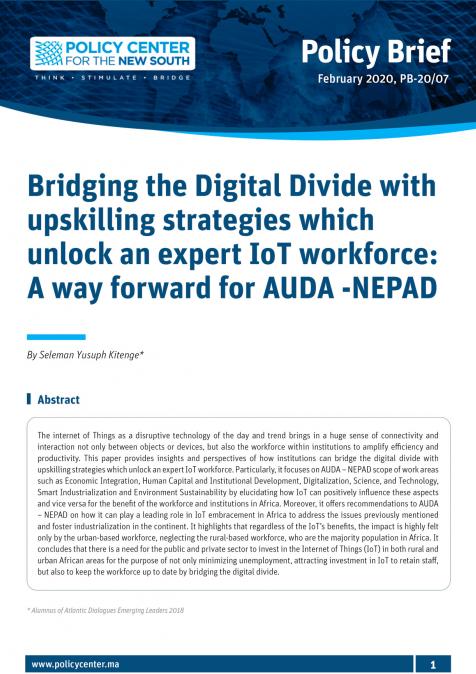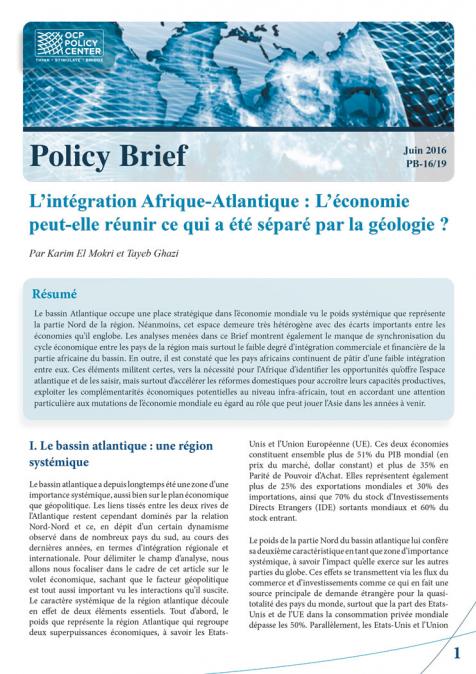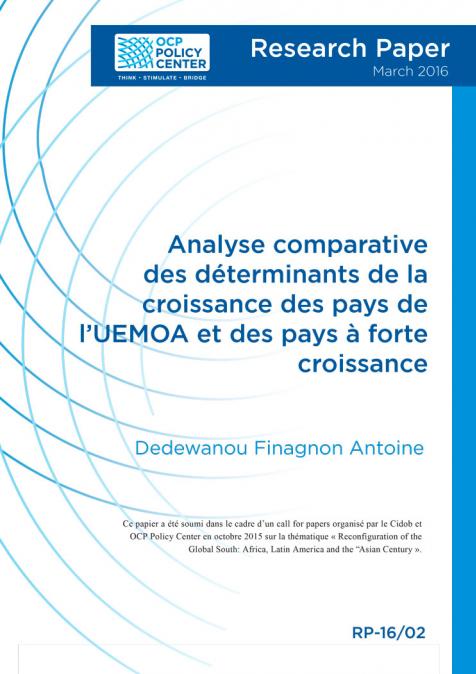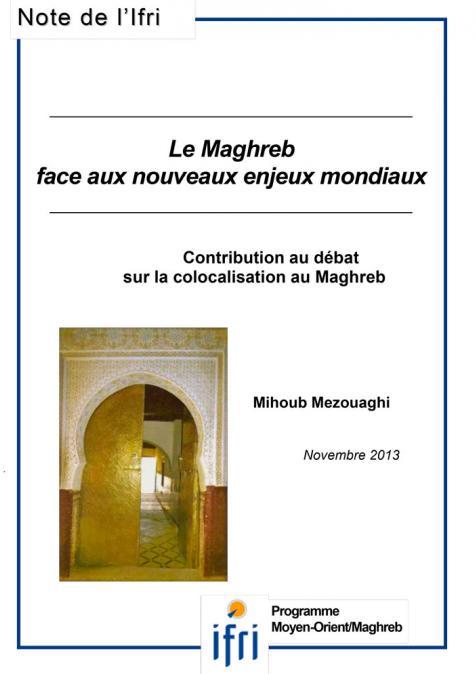Publications /
Policy Brief
The internet of Things as a disruptive technology of the day and trend brings in a huge sense of connectivity and interaction not only between objects or devices, but also the workforce within institutions to amplify efficiency and productivity. This paper provides insights and perspectives of how institutions can bridge the digital divide with upskilling strategies which unlock an expert IoT workforce. Particularly, it focuses on AUDA – NEPAD scope of work areas such as Economic Integration, Human Capital and Institutional Development, Digitalization, Science, and Technology, Smart Industrialization and Environment Sustainability by elucidating how IoT can positively influence these aspects and vice versa for the benefit of the workforce and institutions in Africa. Moreover, it offers recommendations to AUDA – NEPAD on how it can play a leading role in IoT embracement in Africa to address the issues previously mentioned and foster industrialization in the continent. It highlights that regardless of the IoT’s benefits, the impact is highly felt only by the urban-based workforce, neglecting the rural-based workforce, who are the majority population in Africa. It concludes that there is a need for the public and private sector to invest in the Internet of Things (IoT) in both rural and urban African areas for the purpose of not only minimizing unemployment, attracting investment in IoT to retain staff, but also to keep the workforce up to date by bridging the digital divide.
*Seleman Yusuph Kitenge is Alumnus of Atlantic Dialogues Emerging Leaders 2018








